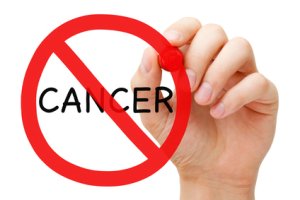 Melatonin is primarily known for its role as a sleep hormone. Nonetheless, studies reveal that melatonin has a variety of anti-cancer properties, and supplementing with the substance may increase the effect of chemotherapy while counteracting its side effects.
Melatonin is primarily known for its role as a sleep hormone. Nonetheless, studies reveal that melatonin has a variety of anti-cancer properties, and supplementing with the substance may increase the effect of chemotherapy while counteracting its side effects.
- but specific nutrients protect you
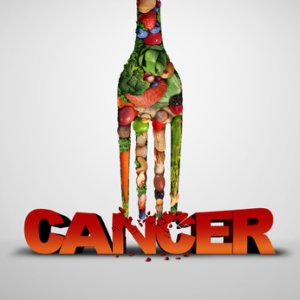 People, who eat nutrient-depleted diets, have an increased risk of contracting cancer, according to a French study that is published in PLoS Medicine. The scientists therefore recommend labeling food to help consumers make healthier choices. In the Nordic countries, we already have the “Keyhole label” on certain healthy food items, but even if you follow the official dietary guidelines, it may be difficult to get enough vitamin D and selenium, both of which are nutrients with several anti-cancer mechanisms.
People, who eat nutrient-depleted diets, have an increased risk of contracting cancer, according to a French study that is published in PLoS Medicine. The scientists therefore recommend labeling food to help consumers make healthier choices. In the Nordic countries, we already have the “Keyhole label” on certain healthy food items, but even if you follow the official dietary guidelines, it may be difficult to get enough vitamin D and selenium, both of which are nutrients with several anti-cancer mechanisms.
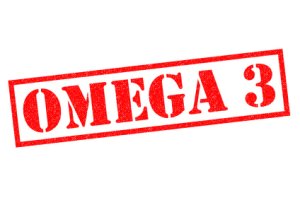 Omega-3 fatty acids are known to positively support chemotherapy by maintaining body weight and muscle mass. According to a new study that is published in the esteemed science journal, Nutrition, omega-3 supplements can even reduce different side effects of chemotherapy.
Omega-3 fatty acids are known to positively support chemotherapy by maintaining body weight and muscle mass. According to a new study that is published in the esteemed science journal, Nutrition, omega-3 supplements can even reduce different side effects of chemotherapy.
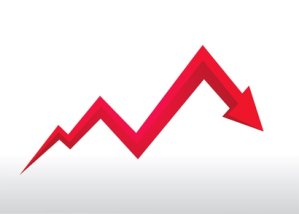 Although cancer treatments have improved drastically, science has still not managed to break the curve. On the contrary. A growing number of people contract cancer, and that is why we should focus more on the trace element, selenium, which possesses several mechanisms against cancer. However, it requires that we get enough selenium and that is in a form that the body is able to utilize optimally.
Although cancer treatments have improved drastically, science has still not managed to break the curve. On the contrary. A growing number of people contract cancer, and that is why we should focus more on the trace element, selenium, which possesses several mechanisms against cancer. However, it requires that we get enough selenium and that is in a form that the body is able to utilize optimally.
Supplementing  with the trace element selenium may reduce a man's risk of developing prostate cancer, according to a Danish report.
with the trace element selenium may reduce a man's risk of developing prostate cancer, according to a Danish report.
Men may reduce their risk of contracting prostate cancer simply taking supplements of selenium or by eating foods that are rich in this vital trace element. A 2014 report issued by the National Food Institute, a subdivision of the Technical University of Denmark, concludes on behalf of thorough analyses of the available science that there is an inverse relation between selenium intake and the incidence of prostate cancer. The new report represents the scientific foundation for a whole new set of dietary guidelines recently issued by the Danish Veterinary and Food Administration.
– and why it is vital to get the exact right amount!
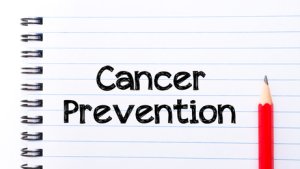 All our cells contain different selenium compounds that support a number of vital functions, and which have several cancer-fighting mechanisms. As an antioxidant, selenium prevents iron from developing some of the most harmful free radicals that can damage cellular DNA and lead to uncontrolled cell division. This is why a selenium deficiency combined with excess iron is a lethal cocktail. Although iron is essential, it is vital that we do not get too much. It is also important to get plenty of selenium from food and/or supplements and in a form that the body can absorb and utilize in each and every cell in order to be properly protected against cancerous substances.
All our cells contain different selenium compounds that support a number of vital functions, and which have several cancer-fighting mechanisms. As an antioxidant, selenium prevents iron from developing some of the most harmful free radicals that can damage cellular DNA and lead to uncontrolled cell division. This is why a selenium deficiency combined with excess iron is a lethal cocktail. Although iron is essential, it is vital that we do not get too much. It is also important to get plenty of selenium from food and/or supplements and in a form that the body can absorb and utilize in each and every cell in order to be properly protected against cancerous substances.
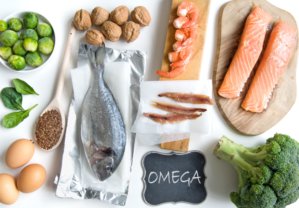 The global differences in prostate cancer rates reveal that this type of cancer is associated with lifestyle. For example, Inuits have a very low rate of prostate cancer, which is attributed to their high intake of omega-3 fatty acids from seal, salmon, and other maritime sources. It turns out that the content of the omega-3 fatty acid EPA in prostate cells is a determining factor for how and if the disease develops, according to a new study that is published in Nutrients. Selenium also has anti-cancer properties, especially with relation to prostate cancer, and there are other dietary measures that can make a difference.
The global differences in prostate cancer rates reveal that this type of cancer is associated with lifestyle. For example, Inuits have a very low rate of prostate cancer, which is attributed to their high intake of omega-3 fatty acids from seal, salmon, and other maritime sources. It turns out that the content of the omega-3 fatty acid EPA in prostate cells is a determining factor for how and if the disease develops, according to a new study that is published in Nutrients. Selenium also has anti-cancer properties, especially with relation to prostate cancer, and there are other dietary measures that can make a difference.
 There are several kinds of vitamin D with the two most important being:
There are several kinds of vitamin D with the two most important being:
- D2, ergocalciferol, that is found naturally in the plant kingdom.
- Vitamin D3, cholecalciferol, that is found naturally in the animal kingdom.
Humans synthesise vitamin D (cholecalciferol) from sunlight (UV-B rays) and a cholesterol compound in the skin, which is converted to active vitamins by means of processes in the liver and kidneys. We humans are only able to synthesise vitamin D during the summer season when the sun is high in the sky. Excess amounts of the nutrient are stored in the liver for future use. Light skin produces substantially larger amounts of vitamin D than dark skin. In contrast, dark skin protects against vitamin D overproduction. As we grow older, our vitamin D production decreases. Vitamin D is also called a provitamin or hormone, simply because we are easily able to make it ourselves, and all cells in the body have vitamin D receptors.
Vitamin D is fat-soluble and is stored in the body's fat tissue when ingested in large amounts. Vitamin D is destroyed by light and heat from cooking.
 Melatonin is primarily known for its role as a sleep hormone. Nonetheless, studies reveal that melatonin has a variety of anti-cancer properties, and supplementing with the substance may increase the effect of chemotherapy while counteracting its side effects.
Melatonin is primarily known for its role as a sleep hormone. Nonetheless, studies reveal that melatonin has a variety of anti-cancer properties, and supplementing with the substance may increase the effect of chemotherapy while counteracting its side effects.







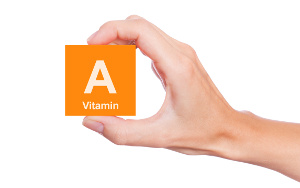



 People, who eat nutrient-depleted diets, have an increased risk of contracting cancer, according to a French study that is published in PLoS Medicine. The scientists therefore recommend labeling food to help consumers make healthier choices. In the Nordic countries, we already have the “Keyhole label” on certain healthy food items, but even if you follow the official dietary guidelines, it may be difficult to get enough vitamin D and selenium, both of which are nutrients with several anti-cancer mechanisms.
People, who eat nutrient-depleted diets, have an increased risk of contracting cancer, according to a French study that is published in PLoS Medicine. The scientists therefore recommend labeling food to help consumers make healthier choices. In the Nordic countries, we already have the “Keyhole label” on certain healthy food items, but even if you follow the official dietary guidelines, it may be difficult to get enough vitamin D and selenium, both of which are nutrients with several anti-cancer mechanisms.
 Although cancer treatments have improved drastically, science has still not managed to break the curve. On the contrary. A growing number of people contract cancer, and that is why we should focus more on the trace element,
Although cancer treatments have improved drastically, science has still not managed to break the curve. On the contrary. A growing number of people contract cancer, and that is why we should focus more on the trace element,  with the trace element selenium may reduce a man's risk of developing prostate cancer, according to a Danish report.
with the trace element selenium may reduce a man's risk of developing prostate cancer, according to a Danish report. All our cells contain different
All our cells contain different  The global differences in prostate cancer rates reveal that this type of cancer is associated with lifestyle. For example, Inuits have a very low rate of prostate cancer, which is attributed to their high intake of
The global differences in prostate cancer rates reveal that this type of cancer is associated with lifestyle. For example, Inuits have a very low rate of prostate cancer, which is attributed to their high intake of  There are several kinds of vitamin D with the two most important being:
There are several kinds of vitamin D with the two most important being: "After about one week of taking the Q10 supplement I could feel a huge difference," says 23-year old Alan Piccini, who has been suffering from extreme fatigue and muscle aches ever since he was a child.
"After about one week of taking the Q10 supplement I could feel a huge difference," says 23-year old Alan Piccini, who has been suffering from extreme fatigue and muscle aches ever since he was a child. “Taking capsules with co-enzyme Q10 has freed me of the severe side effects of my cholesterol lowering medicine,” Mrs Franken explains.
“Taking capsules with co-enzyme Q10 has freed me of the severe side effects of my cholesterol lowering medicine,” Mrs Franken explains.